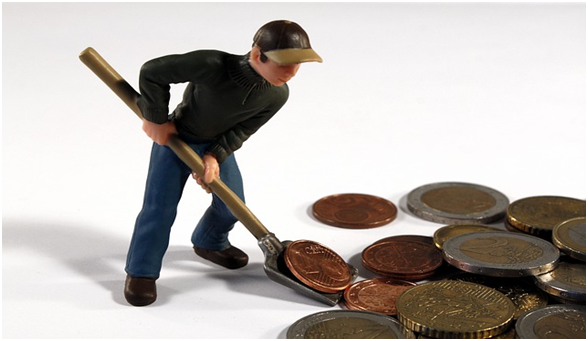
I often get this question; if the shilling is comparatively weaker, wouldn’t I get more for my money if I went with $1000 to the Nairobi Securities Exchange?
In the interim, the answer is affirmative. 1000 dollars would definitely get you more shares when the shilling is weak. However, in the bigger picture, one may lose more than they bargained for.
From 2013 to date, the shilling has seen some significant depreciation, with the rate hitting the bottom on the 27th August 2015 at 105.7. With a stringent monetary policy, the Central Bank has managed to reign in on the depreciation and today it’s exchanging at an average of 103.
A weak currency means that the currency no longer has the buying power it did. A loss in buying power leads to high inflation and social tension. This means that businesses spend more to access raw materials and services necessary for production. It gets worse if the business is importing its raw materials. This trend can lead to an inhibited growth of the economy.
For individuals, because of the devaluing of the currency, there will be less disposable income and by extension lower savings. The reduced savings mean lower investment which further leads to high unemployment figures.
Perhaps the good news in a weak currency regime is that exports become more affordable in the international markets making home-grown products attractive.
This advantage however would be enjoyed by a country which is a net exporter. In a country like Kenya where the import bill is far much larger than the export account, a weak shilling is a liability. It pushes inflation upwards and the economic repercussions would slow down growth significantly. Tellingly, an economy that is not growing means a market whose indices are falling.
The stock market has responded as expected. In 2016, the market fell by 8.5% while the previous year, the NSE 20 share lost 20.97% of its value. The NSE 20 share and NASI both hit the bottom on the 30th January 2017. Tellingly, this is driven by a weak currency and unconvincing economic indicators. That is not all. Narratives of mismanagement and loss making in Mumias Sugar and Kenya Airways send mixed signals. Worse still, their recovery has delayed two years later giving jitters to investors.
In an environment of uncertainty, investors find solace in the blue chips; extra large companies. Evidently, the attention has moved to Safaricom , East African Breweries and Kenya Commercial Bank . Investors hope to find safety in the greatness of the size. Given that the market is bigger than the large caps, the overall performance tends to sag downwards.
The subdued economic environment is motivated by an increased import bill to reign in on the effects of the drought in many parts of the country and a risk averse attitude informed by the general elections slated for August this year. The drought effects will be mitigated after the first harvest sometime in June/July this year while the political risks will only be eliminated after the election cycle is complete in August or October in case of a run off or a court case. In principle, the current economic environment will prevail until the third quarter. This means that in the longer course of things, the market will also be subdued.
African markets had shrugged off political risks associated with elections and grown quite resilient. This rang true across the board from South Africa, Botswana, Nigeria, Ghana even Kenya in the past election. However, with the election of Trump and introduction of a protectionist policy, many international investors have chosen to pack their money in the US. There is little money flowing to emerging markets and even lesser going into frontier markets like Kenya. This scenario, coupled with the news that Nairobi is the worst performing market, makes foreign investment to be minimal and sensitive to political risks.
Is there a case for investing at the bourse with all this doom?
Definitely! Some of the richest men and families in New York invested therein when the markets were at their lowest during the great depression and through some deep bears. Most counters are discounted currently, pointing to a great opportunity for an investor. The turnaround is expected later in the year thus the waiting time is minimal and the case for investment is strong. I would go for smaller counters in insurance, agricultural and manufacturing. In the longer term, they will see a brighter day.
Interestingly, there are some foreign investors who are waiting for the market to bottom out so they can take full advantage of the bear. Well, Africans only slaughter when the visitors come, so let them. But make sure you are in when the meat is being distributed.
@ElimConsulting
